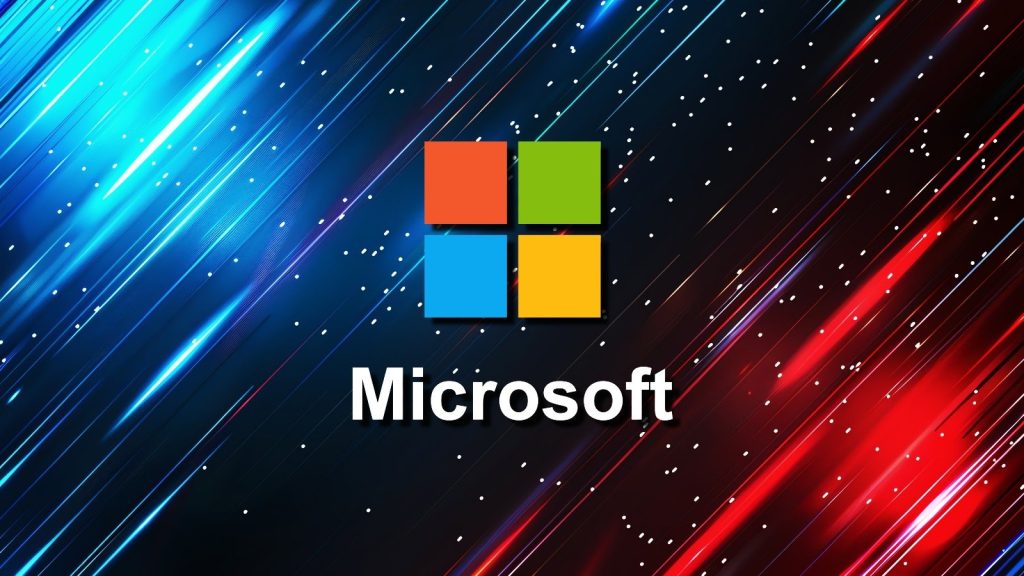Imagine you’re a journalist, pouring your heart into a story, only to find it’s been gobbled up by an AI tool and spat out as a summary somewhere else—without a penny or a nod your way. Frustrating, right? This is the reality many publishers have faced as AI reshapes how we consume content. But Microsoft’s latest move, the Publisher Content Marketplace (PCM), might just change the game. Launched in September 2025, this AI-powered platform aims to pay publishers for the content that fuels tools like Copilot, creating a win-win for creators and marketers alike. Let’s dive into what this means, why it matters, and how it could shake up digital marketing in the UK and beyond.
The AI Boom: Great for Tech, Tough on Creators
AI has taken the digital world by storm. From crafting snappy ad copy to summarising news in seconds, tools like ChatGPT and Google’s AI Overviews have changed how we interact with information. As a marketer, I love how AI lets me target ads with laser precision—knowing exactly what a customer might want before they do. But for publishers, it’s been a rough ride. People are clicking less on news sites, opting for quick AI answers instead, which has slashed traffic and ad revenue. In the UK alone, the media industry’s been hit hard, with thousands of journalism jobs vanishing globally last year and more cuts looming in 2025.
The real sting? AI models have been trained on publishers’ work—articles, reviews, you name it—often without permission or payment. Big names like The New York Times have pushed back, suing companies like OpenAI and even Microsoft itself for copyright breaches. It’s a fair fight: if your content’s powering billion-dollar AI, shouldn’t you get a slice? Microsoft’s PCM is their answer, and it’s not just a quick fix—it’s a bold step towards a fairer digital world.
What’s the Publisher Content Marketplace All About?
Picture PCM as a bustling online marketplace, like eBay for content, where publishers can sell their work to AI systems. It’s kicking off with Microsoft’s Copilot, the AI assistant that’s already making waves with features like Copilot Daily, a news summary tool available in the UK and US. Instead of secretive backroom deals (like Microsoft’s 2024 agreements with Reuters or the Financial Times), PCM opens the doors wide. Publishers—big or small—can upload their content, from breaking news to in-depth features, and set terms for how it’s used. AI developers, starting with Copilot, can then license this content for things like generating reports or answering user queries.
Here’s the cool bit: it’s all streamlined. Publishers tag their content with details like usage rights and pricing, and transactions happen automatically—think micropayments for every time a snippet of your article pops up in a Copilot response. Microsoft’s pitch is simple: “You deserve to be paid for the quality of your work.” They’re even exploring ways to measure that quality—maybe how fresh or engaging your content is—which could change how we value content in an AI-driven world. For now, PCM’s in a pilot phase with a handful of US publishers, but the plan is to roll it out globally, and I’m excited to see how UK outlets like The Guardian or local blogs get involved.
Why This Matters for Digital Marketing
As someone who’s spent hours tweaking ad campaigns, I can see PCM being a game-changer for marketers. Right now, AI’s a double-edged sword in our world. It’s brilliant for crunching data and serving hyper-targeted ads, but it’s also starving the content ecosystem we rely on. Fewer clicks to publisher sites mean fewer ad impressions, and that’s a problem when your campaign’s success hinges on visibility.
PCM flips this dynamic. By ensuring publishers get paid, it keeps the content flowing, which is great news for marketers. Imagine running a travel campaign where Copilot pulls hotel reviews from licensed sources like a trusted UK travel blog, complete with a sponsored link back to your client’s booking site. You’re not just reaching customers—you’re doing it ethically, with revenue flowing back to the creator. This could breathe new life into affiliate marketing, where clicks and conversions are tied to quality content. Plus, in the UK, where GDPR means we’re already picky about data ethics, PCM’s transparent licensing fits like a glove.
Smaller publishers, like that niche blog about sustainable living in Bristol, could shine here too. They can license their expertise to AI tools, giving marketers access to hyper-specific content for campaigns—say, eco-friendly product ads. This diversity makes AI outputs richer, which means better ads and happier audiences. Early signs suggest this could boost click-through rates, as people trust AI answers backed by real, credited sources.
The Bigger Picture: A Win for Everyone?
For publishers, PCM is a lifeline. With ad revenue tanking—some news sites report 20-30% traffic drops due to AI summaries—getting paid for AI usage could fund everything from investigative scoops to local reporting. In the UK, where Meta and Google dominate ad spend, this extra income could be a game-changer for struggling newsrooms.
For Microsoft, it’s a savvy move. They’re not just dodging lawsuits (like the ones dogging OpenAI); they’re building trust and strengthening Copilot’s edge, especially in businesses where it’s already a staple. Marketers like me benefit too—access to premium, licensed content means we can craft campaigns that feel authentic and compliant.
The Road Ahead: Challenges and Opportunities
Of course, it’s not all smooth sailing. PCM’s pilot is US-focused, which might leave UK publishers feeling left out initially. There’s also the question of how you price content fairly—how do you measure “quality” without short-changing smaller players? And let’s not forget the tech side: getting publishers to agree on metadata standards sounds like herding cats. Regulations like the EU’s AI Act or the UK’s Online Safety Bill add another layer—PCM will need to stay nimble to comply across borders.
But the potential is huge. If PCM takes off, it could inspire a wave of similar marketplaces, creating a “content commons” where AI and creators thrive together. For marketers, it’s a chance to pivot towards AI-driven strategies that don’t sacrifice ethics for efficiency.
Wrapping Up: A Step Towards a Fairer Future
Microsoft’s Publisher Content Marketplace isn’t just a tech launch—it’s a statement. By paying publishers for their work, it’s paving the way for a digital world where creators, AI, and marketers can coexist. As we sit here on 25 September 2025, I’m optimistic. This could be the start of something big—a model where AI amplifies great content instead of exploiting it.
What do you reckon? Will PCM change how we market and create, or is it just a drop in the digital ocean? Drop your thoughts in the comments!
References:
- Axios: Microsoft looks to build AI marketplace for publishers
- Tomorrow’s Publisher: Microsoft launches marketplace to compensate publishers for AI usage
- Windows Central: Microsoft’s Publisher Content Marketplace will pay AI creators
- Thurrott: Report: Microsoft to Compensate Publishers for Content Used by AI
Image credit: Generated via Microsoft Designer (for illustration purposes).
Microsoft’s PCM: Fair AI Payouts for Creators – Coolmedia Marketing
Posted on 25 September 2025
Imagine you’re a journalist, pouring your heart into a story, only to find it’s been gobbled up by an AI tool and spat out as a summary somewhere else—without a penny or a nod your way. Frustrating, right? This is the reality many publishers have faced as AI reshapes how we consume content. But Microsoft’s latest move, the Publisher Content Marketplace (PCM), might just change the game. Launched in September 2025, this AI-powered platform aims to pay publishers for the content that fuels tools like Copilot, creating a win-win for creators and marketers alike. Let’s dive into what this means, why it matters, and how it could shake up digital marketing in the UK and beyond.
The AI Boom: Great for Tech, Tough on Creators
AI has taken the digital world by storm. From crafting snappy ad copy to summarising news in seconds, tools like ChatGPT and Google’s AI Overviews have changed how we interact with information. As a marketer, I love how AI lets me target ads with laser precision—knowing exactly what a customer might want before they do. But for publishers, it’s been a rough ride. People are clicking less on news sites, opting for quick AI answers instead, which has slashed traffic and ad revenue. In the UK alone, the media industry’s been hit hard, with thousands of journalism jobs vanishing globally last year and more cuts looming in 2025.
The real sting? AI models have been trained on publishers’ work—articles, reviews, you name it—often without permission or payment. Big names like The New York Times have pushed back, suing companies like OpenAI and even Microsoft itself for copyright breaches. It’s a fair fight: if your content’s powering billion-dollar AI, shouldn’t you get a slice? Microsoft’s PCM is their answer, and it’s not just a quick fix—it’s a bold step towards a fairer digital world.
What’s the Publisher Content Marketplace All About?
Picture PCM as a bustling online marketplace, like eBay for content, where publishers can sell their work to AI systems. It’s kicking off with Microsoft’s Copilot, the AI assistant that’s already making waves with features like Copilot Daily, a news summary tool available in the UK and US. Instead of secretive backroom deals (like Microsoft’s 2024 agreements with Reuters or the Financial Times), PCM opens the doors wide. Publishers—big or small—can upload their content, from breaking news to in-depth features, and set terms for how it’s used. AI developers, starting with Copilot, can then license this content for things like generating reports or answering user queries.
Here’s the cool bit: it’s all streamlined. Publishers tag their content with details like usage rights and pricing, and transactions happen automatically—think micropayments for every time a snippet of your article pops up in a Copilot response. Microsoft’s pitch is simple: “You deserve to be paid for the quality of your work.” They’re even exploring ways to measure that quality—maybe how fresh or engaging your content is—which could change how we value content in an AI-driven world. For now, PCM’s in a pilot phase with a handful of US publishers, but the plan is to roll it out globally, and I’m excited to see how UK outlets like The Guardian or local blogs get involved.
Why This Matters for Digital Marketing
As someone who’s spent hours tweaking ad campaigns, I can see PCM being a game-changer for marketers. Right now, AI’s a double-edged sword in our world. It’s brilliant for crunching data and serving hyper-targeted ads, but it’s also starving the content ecosystem we rely on. Fewer clicks to publisher sites mean fewer ad impressions, and that’s a problem when your campaign’s success hinges on visibility.
PCM flips this dynamic. By ensuring publishers get paid, it keeps the content flowing, which is great news for marketers. Imagine running a travel campaign where Copilot pulls hotel reviews from licensed sources like a trusted UK travel blog, complete with a sponsored link back to your client’s booking site. You’re not just reaching customers—you’re doing it ethically, with revenue flowing back to the creator. This could breathe new life into affiliate marketing, where clicks and conversions are tied to quality content. Plus, in the UK, where GDPR means we’re already picky about data ethics, PCM’s transparent licensing fits like a glove.
Smaller publishers, like that niche blog about sustainable living in Bristol, could shine here too. They can license their expertise to AI tools, giving marketers access to hyper-specific content for campaigns—say, eco-friendly product ads. This diversity makes AI outputs richer, which means better ads and happier audiences. Early signs suggest this could boost click-through rates, as people trust AI answers backed by real, credited sources.
The Bigger Picture: A Win for Everyone?
For publishers, PCM is a lifeline. With ad revenue tanking—some news sites report 20-30% traffic drops due to AI summaries—getting paid for AI usage could fund everything from investigative scoops to local reporting. In the UK, where Meta and Google dominate ad spend, this extra income could be a game-changer for struggling newsrooms.
For Microsoft, it’s a savvy move. They’re not just dodging lawsuits (like the ones dogging OpenAI); they’re building trust and strengthening Copilot’s edge, especially in businesses where it’s already a staple. Marketers like me benefit too—access to premium, licensed content means we can craft campaigns that feel authentic and compliant.
The Road Ahead: Challenges and Opportunities
Of course, it’s not all smooth sailing. PCM’s pilot is US-focused, which might leave UK publishers feeling left out initially. There’s also the question of how you price content fairly—how do you measure “quality” without short-changing smaller players? And let’s not forget the tech side: getting publishers to agree on metadata standards sounds like herding cats. Regulations like the EU’s AI Act or the UK’s Online Safety Bill add another layer—PCM will need to stay nimble to comply across borders.
But the potential is huge. If PCM takes off, it could inspire a wave of similar marketplaces, creating a “content commons” where AI and creators thrive together. For marketers, it’s a chance to pivot towards AI-driven strategies that don’t sacrifice ethics for efficiency.
Wrapping Up: A Step Towards a Fairer Future
Microsoft’s Publisher Content Marketplace isn’t just a tech launch—it’s a statement. By paying publishers for their work, it’s paving the way for a digital world where creators, AI, and marketers can coexist. As we sit here on 25 September 2025, I’m optimistic. This could be the start of something big—a model where AI amplifies great content instead of exploiting it.
What do you reckon? Will PCM change how we market and create, or is it just a drop in the digital ocean? Drop your thoughts in the comments!
References:
- Axios: Microsoft looks to build AI marketplace for publishers
- Tomorrow’s Publisher: Microsoft launches marketplace to compensate publishers for AI usage
- Windows Central: Microsoft’s Publisher Content Marketplace will pay AI creators
- Thurrott: Report: Microsoft to Compensate Publishers for Content Used by AI




